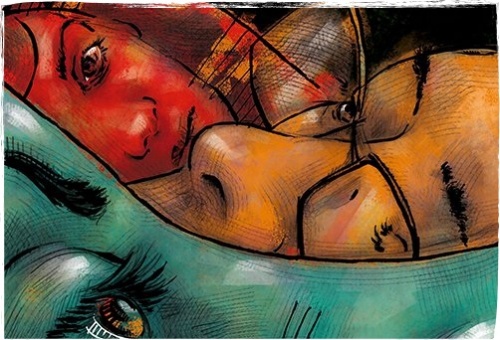AMONG STRANGERS
BATS Theatre, The Propeller Stage, 1 Kent Tce, Wellington
26/09/2017 - 30/09/2017
Production Details
Among Strangers encompasses a trio of short plays, two of which are international award winners and the third yet to be debuted.
An ambitious newsreader caught up being ‘seen to be seen’ is plunged into a terrifying war-torn world; a missing girl returns but is she who she claims to be? And a famous mother goes missing and must be found…
An all-female ensemble presents the trilogy of new mythic tales.
Esther (winner of Playmarket Plays for the Young Competition in the Teenage Category, 2016),
Breaking News, (winner of Best Youth Production at Norfolk Island Theatre Festival, 2015)
August Moon
Three distinct worlds, each exploring the question of what it means to be a young woman in times of rapid global change.
“Through a mechanism of theoretical alchemy, Angie Farrow’s short, sharp plays evoke the performances of myth and the myths of performance we use to choreograph our actions in life and love.” – Thom Conroy, Best-selling author, The Naturalist
After Eden Production warmly invite you to the opening night taking place on Tuesday the 26th of September at 6:30pm. Please also join us after the show for complimentary drinks and nibbles. We ask you kindly to RSVP via email to rsvp@bats.co.nz by the Wednesday the 20th, to ensure your seat is reserved. For further ticketing information and details please see below.
BATS Theatre, Propeller Stage
Dates: Tuesday 26th – Saturday 30th September
Tickets: $14-$20
Booking via https://bats.co.nz/whats-on/among-strangers/
Theatre ,
Intriguing trilogy
Review by Margaret Austin 27th Sep 2017
Hailing from Palmerston North and Massey University, playwright Angie Farrow and director Tracey-Lynne Cody have brought their trilogy Among Strangers to the Propeller stage at Bats Theatre.
Farrow has written extensively for theatre and radio. Here, in three separate but linked pieces, with a nine-strong ensemble of young women, she considers what it means to be a young woman in times of global change.
‘Breaking News’, the first play, portrays a successful, ambitious and upwardly mobile newsreader who’s up for the award of the year. The five-strong cast speak together, reminiscent of the ancient Greek chorus, and a sense of doom is enhanced by music. “None of this is what it looks like,” they intone.
Indeed. References to Versace and collagen injections are interrupted by a plunge into a war-torn world, where our newsreader reels in terror from warfare in an eastern land. Comforted by a desperate woman who has lost her son, she declares: “I am no longer me, but one of many.”
That she has undergone a profound change of attitude is demonstrated at the play’s end – our egotistical, driven main character is softened into a human being.
‘Esther’ is about the identity of a mysterious woman – the Esther of the play’s title – who went missing three years ago, but has now turned up. Mute, gowned full-length in white, Esther is not only the story’s unexplained centrepiece, but also the butt of opinions, contentions, and questions.
“I am Esther’s sister,” claims one character. But is she?
“Did she leave in search of herself?” asks another.
“Everybody’s ‘liking’ you,” declares a third, busy with Facebook. Bureaucracy and its officiousness and ineffectiveness also play a part, enhancing the ragdoll quality our central figure takes on.
The play’s ending, perhaps predictable, has us posing the same question as those who surround Esther: “To admit her strangeness would be to admit the strangeness in ourselves”.
‘August Moon’ completes the trilogy. This time, a mother and daughter, both endearing, are central to the action – the mother because she’s gone missing; the daughter because she is concerned about her missing mother.
August Moon is the unlikely name for the daughter, and we quickly learn she doesn’t like it, one factor amongst others which acts as an undertow to her daughterly affection. “You can wear out a lot of shoe leather when you’re looking for a mother,” she complains. But she looks nevertheless.
The playwright can be congratulated on providing a satisfactory denouement here, which includes both character growth AND a plea for the homeless!
The nine-strong ensemble – consisting of women with impressive theatrical backgrounds, both academically and practically – is to be congratulated. They bring off characters who are appealing, sometimes intriguing and redolent of humanity.
Staging of these three half-hour pieces is of necessity simple, and changes of back drop and furniture are managed efficiently.
Copyright © in the review belongs to the reviewer





Comments